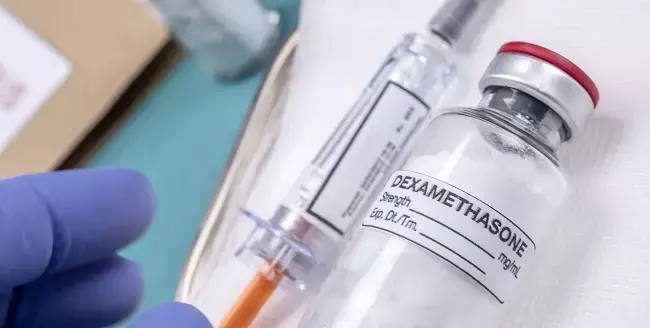- Home
- Medical news & Guidelines
- Anesthesiology
- Cardiology and CTVS
- Critical Care
- Dentistry
- Dermatology
- Diabetes and Endocrinology
- ENT
- Gastroenterology
- Medicine
- Nephrology
- Neurology
- Obstretics-Gynaecology
- Oncology
- Ophthalmology
- Orthopaedics
- Pediatrics-Neonatology
- Psychiatry
- Pulmonology
- Radiology
- Surgery
- Urology
- Laboratory Medicine
- Diet
- Nursing
- Paramedical
- Physiotherapy
- Health news
- Fact Check
- Bone Health Fact Check
- Brain Health Fact Check
- Cancer Related Fact Check
- Child Care Fact Check
- Dental and oral health fact check
- Diabetes and metabolic health fact check
- Diet and Nutrition Fact Check
- Eye and ENT Care Fact Check
- Fitness fact check
- Gut health fact check
- Heart health fact check
- Kidney health fact check
- Medical education fact check
- Men's health fact check
- Respiratory fact check
- Skin and hair care fact check
- Vaccine and Immunization fact check
- Women's health fact check
- AYUSH
- State News
- Andaman and Nicobar Islands
- Andhra Pradesh
- Arunachal Pradesh
- Assam
- Bihar
- Chandigarh
- Chattisgarh
- Dadra and Nagar Haveli
- Daman and Diu
- Delhi
- Goa
- Gujarat
- Haryana
- Himachal Pradesh
- Jammu & Kashmir
- Jharkhand
- Karnataka
- Kerala
- Ladakh
- Lakshadweep
- Madhya Pradesh
- Maharashtra
- Manipur
- Meghalaya
- Mizoram
- Nagaland
- Odisha
- Puducherry
- Punjab
- Rajasthan
- Sikkim
- Tamil Nadu
- Telangana
- Tripura
- Uttar Pradesh
- Uttrakhand
- West Bengal
- Medical Education
- Industry
Short dexamethasone therapy does not increase infection risk in diabetes patients undergoing arthroplasty

The Journal of Arthroplasty recently published a study presenting compelling evidence opposing the practice of withholding dexamethasone in patients with diabetes undergoing total joint arthroplasty (TJA) due to infection-related concerns.
Postoperative infection after total joint arthroplasty poses a significant concern. In view of this, Ian Jones and colleagues assessed the relationship between dexamethasone usage and the risk of infection in patients with diabetes mellitus (DM) undergoing total joint arthroplasty (TJA).
This retrospective cohort study involved adult patients who underwent primary, elective total knee arthroplasty (TKA) or total hip arthroplasty (THA) from January 2016 to December 2021 by utilizing a large national database. The study encompassed a total of 110,568 total joint arthroplasty (TJA) patients (TKA: 66.6%; THA: 33.4%), with 31.0% (34,298) having diabetes mellitus (DM). The patients who received perioperative dexamethasone were compared to those who did not. The main endpoints included the 90-day risk of surgical site infection (SSI), postoperative periprosthetic joint infection (PJI), and other non-surgical site infections (urinary tract infection [UTI], pneumonia, sepsis).
The key findings of this study were:
When examining the correlation between dexamethasone exposure and study outcomes and considering the interplay between dexamethasone and morning blood glucose levels (BGL), the administration of dexamethasone did not result in elevated odds of periprosthetic joint infection (PJI) or surgical site infection (SSI) in diabetic individuals.
However, dexamethasone notably reduced the adjusted odds of other postoperative infections in diabetic patients, particularly those with morning blood glucose levels ranging from 110 to 248 mg/dL in total knee arthroplasty (TKA) and ≤172 mg/dL in total hip arthroplasty (THA).
The study suggests that a brief perioperative administration of dexamethasone decreased the risk of infection in diabetic patients.
Reference:
Jones, I. A., Wier, J., Liu, K. C., Richardson, M. K., Yoshida, B., Palmer, R., Lieberman, J. R., & Heckmann, N. D. (2024). Dexamethasone-Associated Hyperglycemia is not Associated with Infectious Complications After Total Joint Arthroplasty in Diabetic Patients. In The Journal of Arthroplasty. Elsevier BV. https://doi.org/10.1016/j.arth.2024.01.025
Neuroscience Masters graduate
Jacinthlyn Sylvia, a Neuroscience Master's graduate from Chennai has worked extensively in deciphering the neurobiology of cognition and motor control in aging. She also has spread-out exposure to Neurosurgery from her Bachelor’s. She is currently involved in active Neuro-Oncology research. She is an upcoming neuroscientist with a fiery passion for writing. Her news cover at Medical Dialogues feature recent discoveries and updates from the healthcare and biomedical research fields. She can be reached at editorial@medicaldialogues.in
Dr Kamal Kant Kohli-MBBS, DTCD- a chest specialist with more than 30 years of practice and a flair for writing clinical articles, Dr Kamal Kant Kohli joined Medical Dialogues as a Chief Editor of Medical News. Besides writing articles, as an editor, he proofreads and verifies all the medical content published on Medical Dialogues including those coming from journals, studies,medical conferences,guidelines etc. Email: drkohli@medicaldialogues.in. Contact no. 011-43720751


